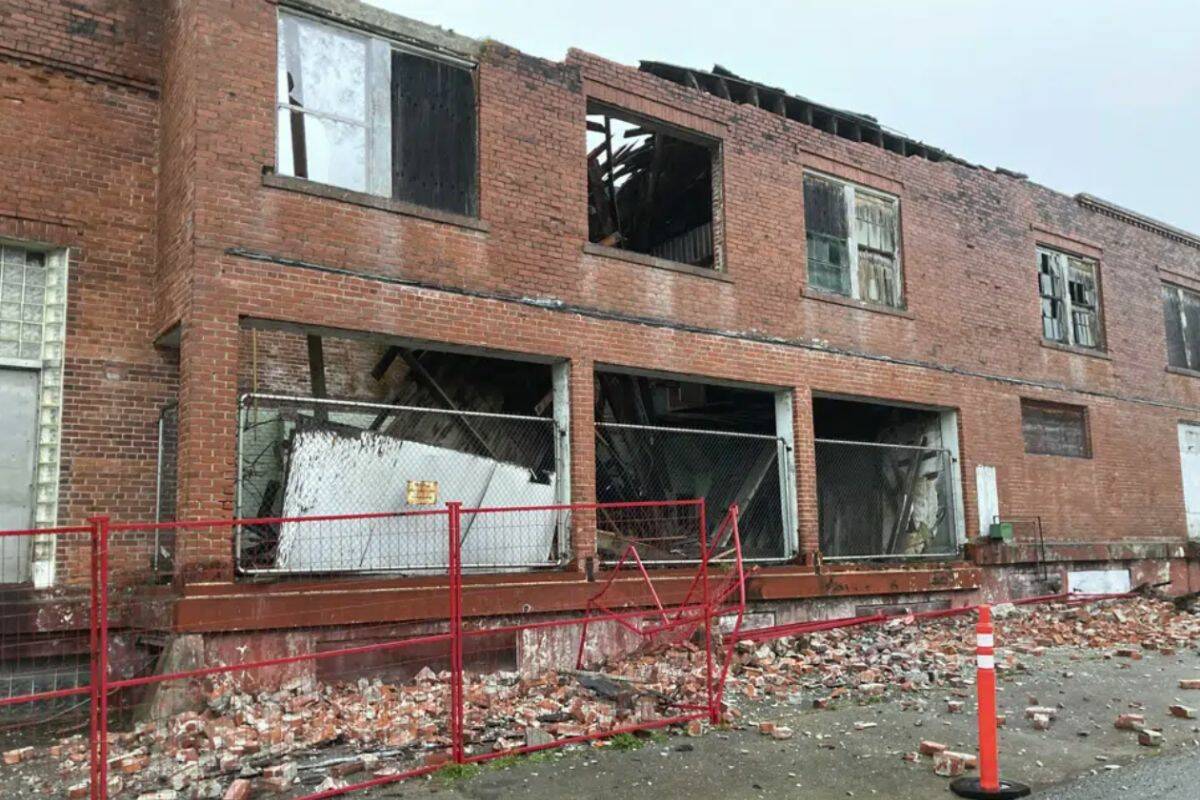A hearty shake south of the border serves as a good reminder – and information-gathering tool – for coastal B.C. residents, says one seismologist who works on the Saanich Peninsula.
John Cassidy, an earthquake seismologist with National Resources Canada, tweeted images showing shaking on Vancouver Island when a 6.4 magnitude earthquake struck California Tuesday (Dec. 20).
There was no shaking felt in B.C., nor a tsunami expected after the earthquake at 2:34 a.m. near Ferndale, about 345 kilometres northwest of San Francisco, just offshore and about 16 km deep.
RELATED: Magnitude 6.4 earthquake shakes parts of northern California
“It is a really active area,” Cassidy said, noting the region had a similar event, a 6.2, exactly a year ago.
The 2 a.m. quake in California was enough to frighten and cause damage to nearby communities.
Cassidy explained Greater Victoria residents get earthquakes that size off Vancouver Island, but 50 or 100 kilometres off shore – so we feel them but it’s not damaging or frightening.
But what they all are is informative.
Ground shaking on #VancouverIsland as waves from this morning's M6.4 northern #California earthquake rolled across the region. Shaking was felt across northern CA, southern OR and a few reports from as far away (800+ km) as Seattle and Los Angeles
Details:https://t.co/K7mWnEiGdo pic.twitter.com/yt1t6CKopF— John Cassidy (@earthquakeguy) December 20, 2022
Thousands of people reported feeling shaking, of varying degrees, across northern California, southern Oregon and even as far as Seattle. Closer to home, the seismometer in the Institute of Ocean Sciences building in North Saanich recorded the Island’s waves. The sensitive instruments are designed to detect tiny earthquakes that happen every day that no one even feels.
To study earthquakes you need data from different locations, with accurate times and accurate recordings, Cassidy said.
“There is a lot that can be learned from recordings, not just from very close to the earthquake, but 800 to 900 km from the earthquake,” he said.
“One of the things you want to learn is the fault it occurred on, how much it moved, how it moved. Looking at data from all sides and distances you can pin down what happened.”
READ ALSO: Vancouver Island slides west, tremors could signal tectonic shifting
It also serves as a timely reminder the west coast of North America is a very active earthquake zone.
“It’s a good reminder to check the earthquake kits and update the plan and know what to do when shaking begins,” Cassidy said. “Some of the world’s largest earthquakes have occurred here. But it’s been a long time and it’s easy to forget.”
Black Press Media has prepared an emergency guide to help residents be ready. To learn more, click here.
READ ALSO: Greater Victoria emergency preparedness
christine.vanreeuwyk@blackpress.ca
Do you have a story tip? Email: newsroom@oakbaynews.com.
Follow us on Twitter and Instagram, and like us on Facebook.

